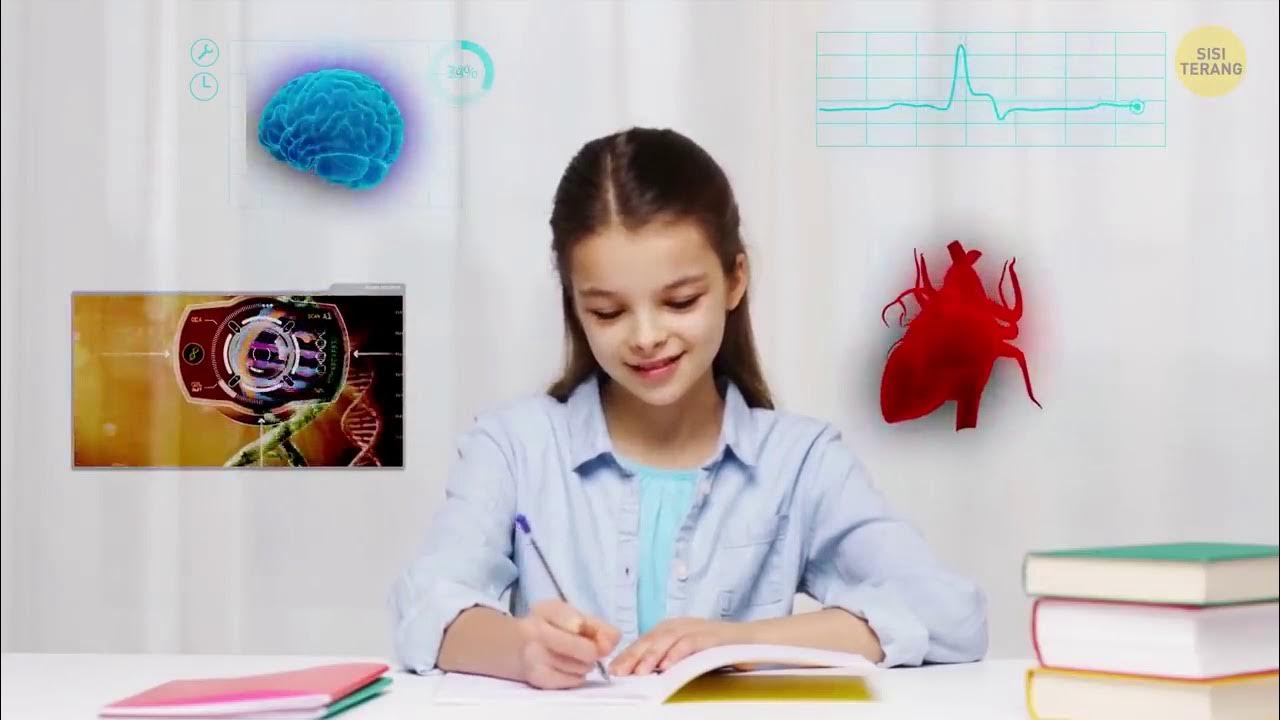10 AI Innovations That Will Change Your Life by 2027
Summary
TLDRBy 2027, AI will revolutionize everyday life through innovations like intelligent AI assistants, self-driving vehicles, and enhanced IoT devices. Technologies such as virtual and augmented reality, brain-computer interfaces, and nanochip integration will transform how we interact with the digital world and improve healthcare. Meanwhile, 6G and Edge Computing will supercharge internet connectivity, and robotic process automation will handle repetitive tasks, boosting efficiency. AI-powered precision agriculture will promote sustainable farming practices, optimizing resource use. Adapting to these advances will be essential to thrive in a rapidly evolving world.
Takeaways
- 🤖 Artificial intelligence agents will become common digital companions, helping with various tasks like vacation planning, managing social connections, and providing personalized recommendations.
- 🚗 Fully automated self-driving vehicles will improve, making travel safer and more efficient, with cars communicating to optimize traffic and reduce accidents.
- 🌐 AI combined with the Internet of Things (IoT) will make homes and cities smarter, automating tasks like adjusting home temperatures and optimizing public services.
- 🎮 Advanced virtual reality (VR) will offer more realistic and interactive experiences, transforming entertainment, learning, and professional training.
- 🛠 Augmented reality (AR) will enhance real-world interactions by overlaying digital information, like virtual directions or product previews, on everyday life.
- 🧠 Brain-computer interfaces (BCI) will enable controlling devices with thoughts, unlocking potential for both people with mobility challenges and general users.
- ⚡ 6G and Edge Computing will revolutionize internet connectivity, making data transfer faster and more responsive, enhancing everything from gaming to smart devices.
- 🤖 Robotic Process Automation (RPA) will streamline repetitive tasks in businesses, freeing humans for more creative work while boosting efficiency and accuracy.
- 🧬 Nanochip integration will transform healthcare by enabling precise, targeted treatments and real-time health monitoring through tiny, advanced medical devices.
- 🌾 AI-powered precision agriculture will optimize farming techniques, increasing crop yields while reducing resource use, leading to more sustainable and resilient agricultural practices.
Q & A
What are AI agents, and how will they impact daily life by 2027?
-AI agents will act as digital companions, assisting with tasks like managing schedules, making recommendations, and even offering empathetic responses. These agents will evolve based on user preferences and habits, making interactions more personal and intuitive.
How will self-driving vehicles change transportation?
-Self-driving vehicles will use AI and advanced sensors to navigate traffic, providing safer and more efficient commutes. They will reduce accidents, optimize traffic flow, and offer a convenient alternative for those who cannot drive.
What is the role of AI in the Internet of Things (IoT)?
-AI will enhance IoT by allowing devices to communicate and predict user needs without manual input. This will make homes, cities, and industries smarter, automating tasks such as adjusting home temperatures or optimizing public services like traffic management.
How will virtual reality (VR) evolve in the coming years?
-Virtual reality will offer more immersive and interactive experiences, transforming entertainment, education, and training. VR will allow users to explore virtual environments in a realistic way, enhancing learning and social connections.
What is the difference between virtual reality (VR) and augmented reality (AR)?
-VR creates an entirely computer-generated environment, while AR overlays digital elements onto the real world. AR enhances real-life experiences, such as displaying directions or trying virtual products, without replacing the actual environment.
What are brain-computer interfaces (BCI), and how will they affect human interaction with technology?
-BCIs enable direct communication between the brain and external devices, allowing users to control technology with their thoughts. This innovation could benefit those with mobility challenges and enhance cognitive abilities, revolutionizing how we interact with the digital world.
What advancements are expected in 6G and edge computing?
-6G and edge computing will provide faster data speeds, reduce latency, and offer more reliable connections. This will improve online experiences, from smoother streaming to instant connectivity for smart devices, revolutionizing the internet as we know it.
How will robotic process automation (RPA) change the workplace?
-RPA will automate repetitive, rule-based tasks, using software robots to mimic human actions on computers. This technology will free up human workers for more creative and complex tasks, increasing efficiency and reducing errors in industries like healthcare, logistics, and manufacturing.
What is nanochip integration, and how will it impact healthcare?
-Nanochip integration involves using tiny computer components to diagnose and treat medical conditions at a cellular level. This technology will enable targeted drug delivery, real-time health monitoring, and personalized medicine, revolutionizing the precision and effectiveness of healthcare.
How will AI revolutionize precision agriculture?
-AI will enhance precision agriculture by analyzing data to optimize irrigation, fertilization, and pest control, increasing crop yields and promoting sustainability. AI-powered tools like sensors and drones will help farmers monitor crops, anticipate challenges, and make proactive decisions.
Outlines

此内容仅限付费用户访问。 请升级后访问。
立即升级Mindmap

此内容仅限付费用户访问。 请升级后访问。
立即升级Keywords

此内容仅限付费用户访问。 请升级后访问。
立即升级Highlights

此内容仅限付费用户访问。 请升级后访问。
立即升级Transcripts

此内容仅限付费用户访问。 请升级后访问。
立即升级浏览更多相关视频
5.0 / 5 (0 votes)






